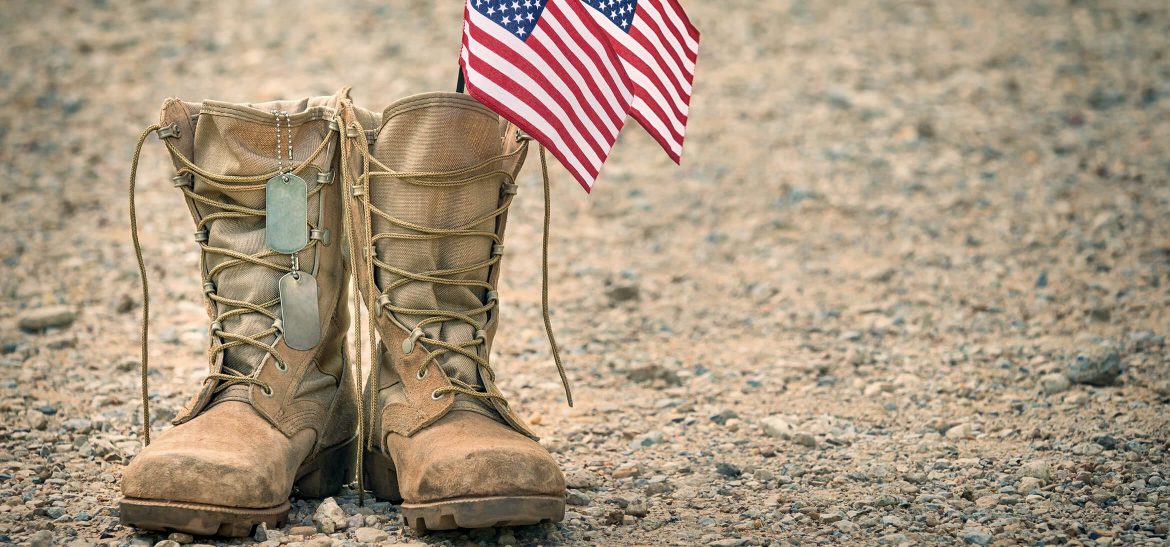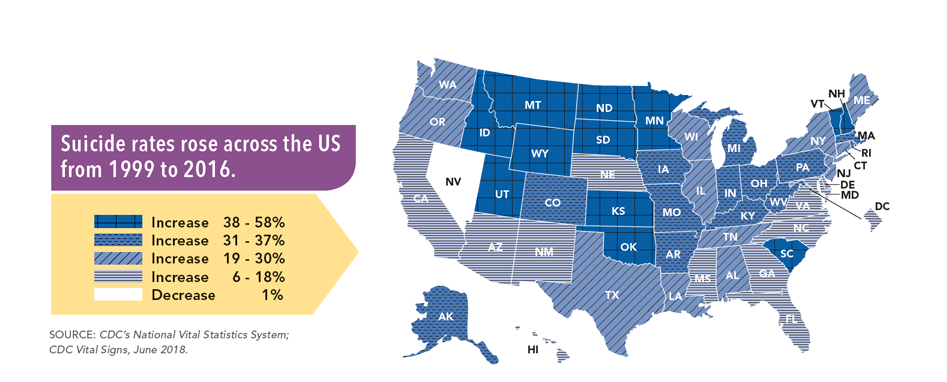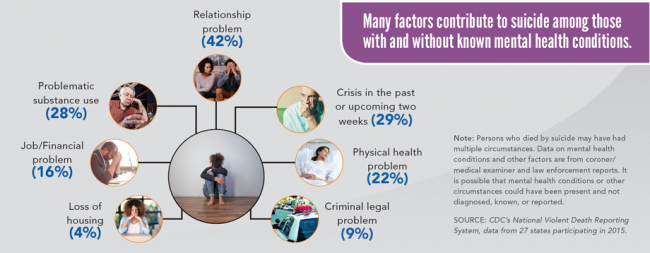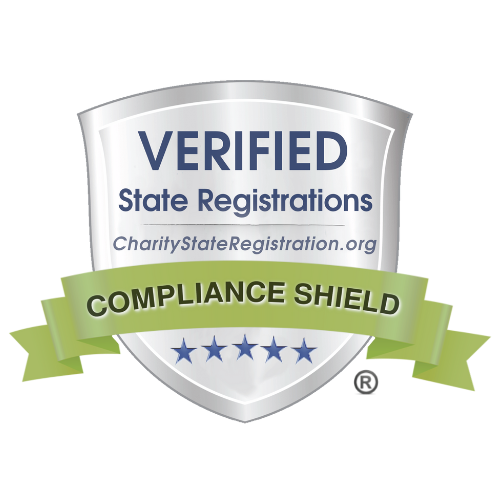IAVA | June 13, 2018
Read: Developments in Veteran Suicide: New CDC Report Released

Suicide is a massive problem that affects both the nation as a whole and the veteran community in particular. It’s a serious public health epidemic that is the source of incredible amounts of strife and pain for individuals, their families, and their communities nationwide. The CDC released a study on suicide on June 8th of this year which compares data from 1999 and 2016. The report comes from the CDC’s monthly Vital Signs report; this is the first time since 2010 that the publication has covered the epidemic.
The Big Takeaways
Shockingly, the suicide rate in half of U.S. states has gone up by 30 percent since 1999. In 2016 alone, 45,000 Americans died by suicide. Furthermore, the amount of women dying by suicide annually has grown by more than twice the amount for men.
Veterans are already at a higher risk for suicide and combining this with the growing suicide rate of women gives us a bleak picture. According to the Department of Veterans Affairs, women veterans are 250 percent more likely to die by suicide than civilian women. So, if the rate for civilian women is climbing, women veterans may also be significantly more at risk if current trends continue. This is why IAVA’s #SheWhoBorneTheBattle campaign to improve services for women veterans is so important, as the situation is rapidly getting worse.

Another important takeaway from this research is that veterans are significantly over represented in suicide statistics; meaning that veterans are dying by suicide at a higher rate than they make up in the U.S. population. While only 7 out of 100 Americans have served at one point or another, 18 of 100 of Americans who have died by suicide are veterans.
The issue of suicide, especially within the military and veteran communities, is not a new topic. But discussing it often quickly turns into a discussion of mental health injuries. However, mental health is not the only factor that is linked to suicide. In fact, according to the CDC report, less than half of all those that died by suicide had a diagnosed mental health condition; the majority did not.
Other risk factors include relationships, substance abuse, physical health, and or stress related to jobs, money, legal issues or housing. The bottom line is this: suicide is a complex and multifaceted problem deeply impacting our nation as a whole.

IAVA Has Your Back
As an advocate for the Post-9/11 generation, IAVA is working with the government, the media and other community organizations to improve suicide prevention. IAVA’s Campaign to Combat Suicide among troops and veterans is number one on IAVA’s Big 6 Priorities for 2018, which you can read about here. And there’s recent, positive news on combating suicide: the omnibus bill enacted into law this past March provides significant funds to implement the IAVA-led Clay Hunt SAV Act and improve mental health and suicide prevention programs. This includes funding for the Veterans Crisis Line, assessments for overmedication of veterans, programs addressing PTSD, increase access for those with other-than-honorable discharges, and other provisions.
And IAVA’s Rapid Response Referral Program (RRRP) is a major resource for all veterans that connect them to the help that they need. Regardless of discharge status, deployments or era served, the RRRP team will set up any veteran with a qualified master level social worker within 24 hours. This IAVA team member will help connect that veteran to the services they need. IAVA has your back.
We know veteran suicide is a top concern for IAVA members which is why it’s part of IAVA’s Big 6. If you are in need of assistance, our RRRP team is standing by. And if you are experiencing a crisis, please call the Veterans Crisis Line at 1-800-273-8255 and press 1 or text 838255.





